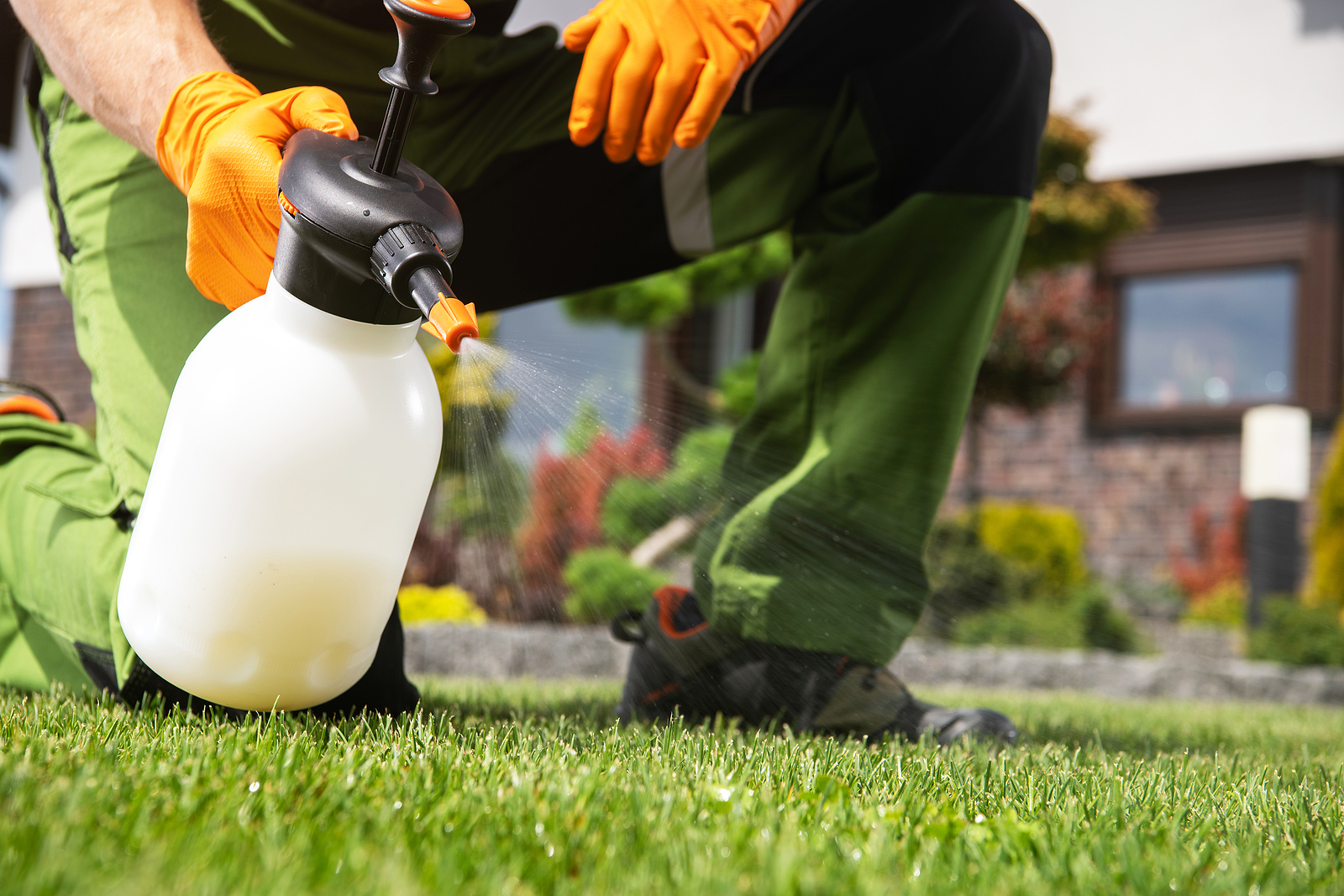It is common for cities and residents to spray for the control of pests such as bugs and weeds. The typical resident and property owner does not need licenses to spray for pests on or around their buildings. However, city staff or contractors hired to do the spraying need licenses and permits, and in some cases notifications are required.
Licensing Requirements
Under Code of Iowa Chapter 206 and applicable Iowa Administrative Codes, cities are required to meet the same licensing requirements as a commercial pesticide applicator with three exceptions:
- The city applicator license is a one year license; however, the $25 annual fee is waived.
- Each city staff member must, individually, be a certified applicator for each category of pesticide to be used. The three-year certification fee for a city applicator is reduced to $15 per category. Some of the most common categories are right-of-way pest control, public health pest control and community pest control.
- Proof of financial responsibility requirement is waived for cities.
In addition to the individual that actually does the spraying, staff who may “handle” pesticides (other than in unopened containers) are also required to have a Certified Handlers Certification. The core examination and test(s) must be successfully completed before applying for certification. Test locations for pesticide applicator permits can be found on the Iowa Department of Agriculture’s Web site.
City staff must also be able to prove they are receiving adequate annual training, are able to complete the written test at the end of the recertification period, or are able to maintain sufficient training or testing for each category of pesticide for which they have a permit. If any of the two hours of annual training (per category) is not attended or proper verification is not available, then the written test will be required.
If a city hires a private contractor, the city is still responsible for ensuring the contractor is in compliance with state pesticide licensing and is financially responsible. It is appropriate for the city to request proof of a current license and sufficient insurance coverage or surety bond. Cities may also check the status of an applicator certification or license through the Pesticide Bureau’s Certified Applicator Database.
Notification
Based upon Iowa Administrative Code Chapter 45 Pesticides, 21.45.50, cities who apply any pesticides (including mosquito spraying done by a contractor) must post or affix notification signs at least 24 hours before the application, or longer if required by the reentry directions on the pesticide label(s). Many cities accomplish this through their Web sites and news releases.
In addition, any citizen may request, in writing, individual notification prior to pesticide application to adjoining properties. The request must include the person’s name, address, telephone number where they can be reached during normal business and evening hours, and the address of each adjoining property. This notification must be made a day in advance in writing, in person or by telephone and indicate the date and estimated time of application. If the person cannot be reached, a written notice must be posted on their residence at least one day before application. Notification requests expire on December 31 of each year; a new request must be filed each year. If the request for notification also includes a request for a copy of the pesticide label, it must also be provided. Cities must also be able to provide the homeowner or person in charge of the property with instructions on proper maintenance procedures.
Requirements for the signs used in the notification process must also be considered. For example, the signs should be able to withstand precipitation for at least the 24 hours before and after pesticide application. This may be longer depending on the pesticide used or if the pesticide requires reentry restrictions of more than 24 hours. When the posting period is over, the signs must be removed by the city, a designee, or the owner or person in charge of the property. Special signage is required in the following situations: residential sites, urban parks, playgrounds, athletic fields and similar areas, golf courses and public rights-of-way. The wording, size of sign, lettering size, and style and placement are different for each specific sign.
Reporting
Each application must be recorded with the date, name of applicator, pesticide used, time, location and any notes concerning wind carry or other incidents during the application. Additionally, any spills or accidents must be reported.
Alternatives to Chemical Spraying
There are many alternative abatement techniques a community can employ, in addition to spraying for mosquitos and other pests. Although the scope of that discussion is too broad for this article, communities should encourage their citizens to:
- Empty standing water from containers such as flower pots, birdbaths, pet water dishes, cans, gutters, tires and buckets.
- Keep windows and door screens in good condition.
- Consider using an insect repellent when outside following label directions.






